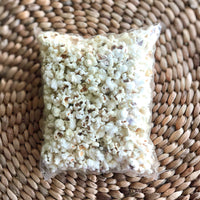
For World Health Day today, let's have a look into the effect stress can have on our overall health and how it can cause weight gain. Many of you may have heard that stress can lead to weight gain. There have been many studies done on stress levels and how our bodies respond to stressful situations.
Firstly, when we are stressed, our bodies go into fight or flight mode to handle the situation. Usually this leads to overeating.
Why does this happen? Our stress hormone, cortisol, increases during stressful, tensed situations.
What exactly happens when you face a stressful situation? Firstly, your hormones are triggered and your body secretes cortisol. Cortisol makes the body aware of the stress and prepares it for a fight or flight response. When this happens your body produces glucose to supply the body with instant energy. When cortisol levels increase, it suppresses insulin production to ensure that glucose is not stored and rather used immediately. The person will then address the situation and hormone levels return to normal levels. When there is a constant inhibition of insulin production but an increased glucose production, the cells are not receiving the glucose it needs which in effect then leads to the sugar cravings to get that instant boost in sugar. This means that during stressful times, our bodies are likely to reach for the chocolates, sweets, chips and other refined carbohydrate sources instead of the brown rice or vegetables. This often leads to people consuming too much sugar and also too many processed, refined products.
Cortisol can also lead to weight gain and obesity by moving triglycerides to the visceral fat storage. Visceral fat is the fat that is located deep in the abdomen and also increases risk for various chronic conditions such as heart disease and diabetes.
What can be done to lower stress levels? There are many things we can do to make sure our stress levels do not increase all the time and even to prevent stress levels from remaining high.
Diet What goes into your body of course also plays a very significant role in decreasing stress levels. It is very important to eat a diet rich in in fruit and vegetables, whole grains, fiber, nuts, seeds and legumes. It is also best to lower caffeine and alcohol, saturated and trans-fats. Here below are 10 foods that can help reduce stress in your body!
Exercise Exercising can play an important role in relieving stress. However, very intense workouts can increase cortisol levels, therefore try a lower intensity jog or cycling session instead. Meditation is another means of decreasing stress levels. Our mind has a strong impact on our food intake and therefore finding ways to clear your mind and relax can decrease the amount of impulsive food cravings.
Sleep Making sure you get enough sleep can also play a significant role in managing stress levels. When you are sleep deprived, your body battles with more than one problem – stress and tiredness. This adds to more stress on the body and more cravings. Make sure to get a good night’s rest.
Author: Dietitian from Beyond Nutrition.






































